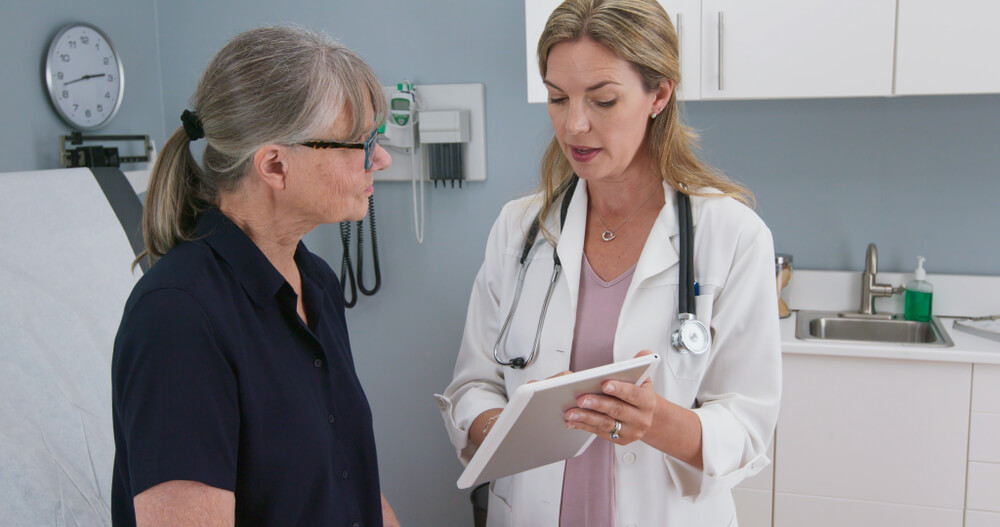Vagina aging is a natural part of life. As the onset of menopause draws near, the body begins to show signs of change in both appearance and function. Problems associated with dryness, sagging, and a loss of lubrication are common in older adults. These shifts are normal, but how they affect your restroom routine and sex life might not be.
Going through a vaginal rejuvenation procedure may be the best (and sometimes the only) way to deal with the aging vagina. Since 2015, the MonaLisa Touch vaginal rejuvenation therapy has been used to treat thousands of women, and 97% of those patients have reportedly been satisfied with the results.
Keep reading to learn more about vaginal changes as you grow older.
9 Aging Vagina Changes to Expect
- Vagina Aging Increases Dryness
The hormone estrogen maintains a healthy quantity of plumpness and moisture in the vaginal tissue. The said tissue loses moisture when estrogen levels begin to decline around menopause. One of the most bothersome signs and symptoms of menopause is dryness. It may also cause sexual discomfort or pain. To lessen the amount of friction, you should use a water-based lubricant. Also, maintain the remaining moisture and vaginal elasticity by having regular sexual encounters.
- Aging Vagina Equals Less Hair

Not all vaginal changes are entirely unwelcome. Your hair naturally goes through variations where it will grow for a certain amount of time and then fall out. The time that passes between hair growth cycles decreases as your hair ages. In addition, a decrease in estrogen levels will cause testosterone to become the predominant hormone in your body. Testosterone promotes hair loss. When more hair falls out than your body can repair, you’ll start to notice regions where your hair is becoming thinner. It happens on the head, and it also happens down there.
- Pubic Hair Also Turns Gray
Though you may anticipate your head hair becoming gray with age, you may be taken aback to discover the first gray hair in the intimate region. The same thing that causes the hair on your head to become gray also causes your pubic hair to turn gray. The cells responsible for manufacturing the chemical melanin, which gives your hair (both the top and the bottom) its color, die off as you age. When your body stops producing as much melanin, your pubic hair will gradually go white or gray.
- Mature Labia Gets Looser
The breakdown of elastin and collagen, proteins that formerly kept skin taut, affects skin tone as we age. That is true for both the facial skin and mature labia (the folds that flank your genitalia). Although sagging mature labia are less noticeable when concealed by underwear, cosmetic surgery can restore fullness and firmness if necessary.
- Pelvic Floor Prolapse
The pelvic floor muscles support the vaginal crest, uterus, rectum, and bladder. A loss of strength in these muscles is associated with sagging pelvic organs (prolapse) after childbirth and menopause. A vaginal bulge can occur when an organ protrudes entirely into the vagina. Pelvic support devices and surgical techniques can help alleviate prolapse by repositioning the pelvic organs.
Maintaining a strong pelvic floor is an important part of preventing prolapse and should start from childbirth and continue for the rest of your life. The most effective method is by performing Kegel exercises, which involve contracting the muscles in your pelvic floor.
- Vagina Aging Can Shrink It
During menopause, estrogen levels drop, causing the thinning of vaginal tissues and loss of vaginal elasticity. Not having sex regularly can cause your vagina to get smaller and shorter. Therefore, it will hurt when you finally do have sex.
Regular intercourse, either with a partner or a vibrating device, will help keep your vaginal muscles supple and flexible.
- Sex Can Become Painful
Engaging in sexual intercourse will be complicated while experiencing an estrogen drop. Due to the loss of vaginal elasticity and dryness, penetration can be very painful.
A decrease in libido is a common side effect of menopause, though this may not be true for all women. Numerous factors – including hormones and emotional state – influence libido.
If you’re afraid of pain, you’re not living a healthy sexual life. Putting off having sexual relations can exacerbate the issue. Discuss estrogen therapy and other options with your doctor if that doesn’t work. That said, a water-based lubricant can help.
- Vaginal Changes Affect the Vulva, Too

The outer lips and the opening of the vagina (vulva) are anatomical structures that you may not know all that well. However, holding up a mirror to that area may reveal some interesting developments. It’s presumably lighter in color than before, for one thing. Due to decreasing estrogen levels, reduced blood flow causes a paler appearance. There may be a dryness to the inner lips since they have shrunk.
Varicose veins on the vulva are common, especially among women who went through childbirth because the vein valves relax and allow blood to pool there.
- You’re More Prone to UTIs
Urinary tract infections (UTIs) can cause sudden toilet needs and pain when urinating (UTI). Many types of bacteria, both beneficial and harmful, can be found in your vagina. Since estrogen levels begin to drop around menopause, the microbiome in the genital area also shifts, leaving behind more harmful than helpful bacteria. That’s why more mature women are more likely to suffer from UTIs.
The frequency and severity of vaginal infections can be minimized by increasing the amount of beneficial bacteria (using vaginal estrogen therapy). Preventing these infections with local estrogen therapy helps replenish your flora, which is essential to good health. Keeping the vaginal tissue flexible and less prone to minor tears by moisturizing, lubrication, and intercourse is also beneficial.
Don’t Fear a Visit to the Doctor
An annual gynecological exam, which does not involve pap smears or a pelvic workup, is recommended to preserve vaginal health as you age.
However, you should visit a doctor if you have any unusual vaginal changes or new symptoms. If you experience persistent irritation, pain, discharge, a foul odor, or bleeding, it’s best to schedule an appointment with your gynecologist or primary care physician for a pelvic exam.
Make sure your worries are heard. Don’t be shy about discussing your concerns with your doctor or obstetrician. Although around 40% of women report experiencing symptoms, only about 25% of those women actually discuss them with a doctor. And doctors rarely talk about that with female patients. Because no one addresses the issue, women assume it comes with age. Don’t ignore the problem or wait for it to get worse; almost everything, in this case, is treatable and easily so.
If you have any concerns about your gynecological health or notice some of the mentioned symptoms, don’t hesitate to get in touch with us at University Park OB/GYN. We provide a secure and gratifying experience for women of all ages, thanks to our cutting-edge medical knowledge and surgical expertise.


